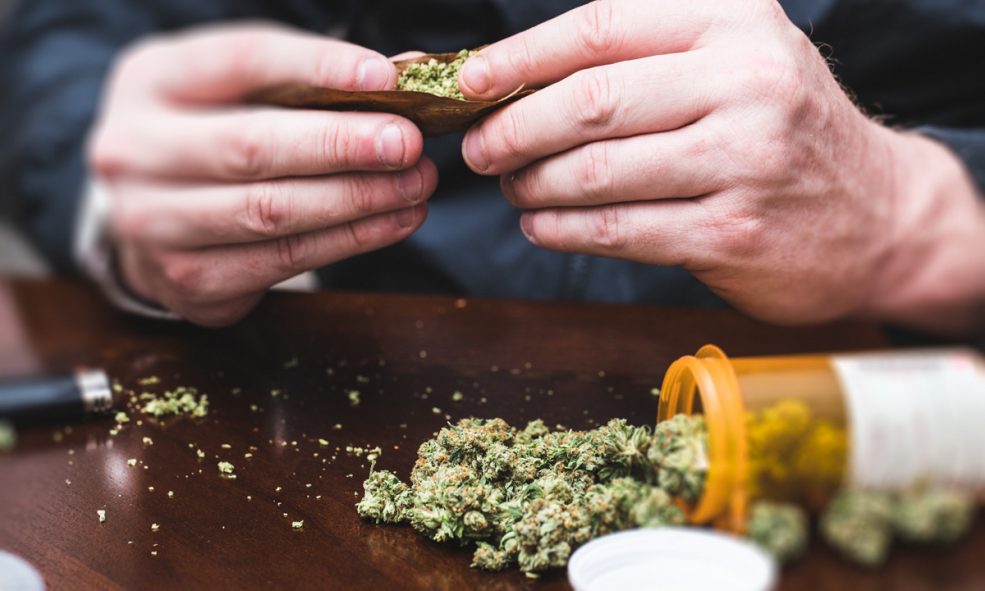Obsessive compulsive disorder (OCD) is a mental health disorder that traps people in cycles of unwanted thoughts or actions that can feel damned near unbreakable. We all have sudden eruptions of nagging doubt—did I lock the door? Is my zipper up? Did that oyster I ate smell funny to you?—but, for someone with OCD, these thoughts open a rabbit hole of escalating urgency and ritualized, repetitive behaviors.
Kind of sounds like the paranoia that can sometimes creep up on you when you’ve gone one toke over the line. And maybe that’s no mistake.
A growing body of research suggests that cannabinoids may have a role in OCD. What’s less clear is whether that role is helpful or hurtful.
RELATED: Little-Known Health Effects Of Medical Marijuana

Ever find yourself driving, lost in thought, only to realize you’re now turning into your driveway, with no recollection how you got there? That was the habit-forming part of your mind taking over, allowing you to do, without any conscious direction, an activity ingrained through long-term repetition.
And that’s distinct from the part of your mind that was in control when you set out earlier that evening to search out the new gastropub that opened in what’s still the most dangerous part of town. (The hand-sourced sycamore-sap and absinthe shrub was sheer poetry!)
Every day our brains transition countless times between habitual behaviors and goal-directed behaviors, and most of us are never even aware of it. In people who suffer from obsessive-compulsive disorder (OCD), however, that transition is a fraught one. and unwanted habits intrude uncontrollably.
A 2016 study on mice appearing in the journal Neuron and funded by the National Institute on Alcohol Abuse and Alcoholism (NIAAA) suggests that the endocannabinoid system helps regulate that transition between habitual and intentional action.
RELATED: How Marijuana Can Help With OCD’s Compulsive Behaviors

The mice were trained to get food in two different ways: one through habit and the other through novel, goal-directed action. When researchers blocked CB1 receptors (the “CB,” of course, stands for “cannabinoid”) in the brain, the mice were unable to form new habits. Instead, they searched for food only through directed action.
The report’s first author, Dr. Christina Gremel of the University of California, San Diego, summarizes the findings: “Our results suggest that alterations in the brain’s endocannabinoid system could be blocking the brain’s capacity to ‘break habits’ as observed in disorders that affect switching between goal-directed and habitual behaviors.” In other words, overactive CB1 receptors may may make it more difficult for OCD patients to break cycles of compulsive behavior.
However, this new report conflicts with earlier data on cannabis and OCD—sort of.
CB1 receptors are what respond to the presence of THC, the intoxicating element in cannabis. Parallel to them are the network of CB2 receptors, which respond to another cannabinoid, CBD. Two studies, from 2010 and 2013, found that CBD actually lowered compulsive activity in lab mice.
That’s not the first time THC and CBD have been found to work at seemingly cross purposes. And it’s another indicator that, when it comes to medical efficacy, whole-plant cannabis might have to step aside for specialized synthetics.
Romanticism, alas, does not always win.


